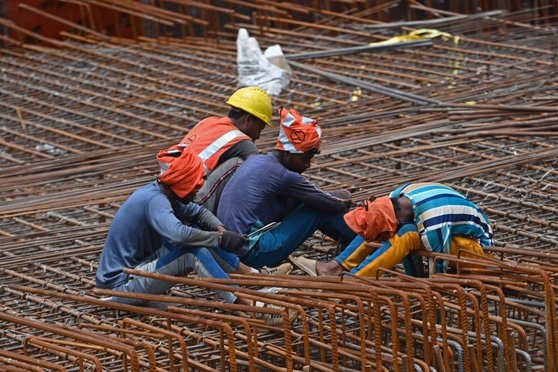Delhi reopens a crack amid gloomy economic forecast for India
NEW DELHI — The Indian capital, which just weeks ago suffered the devastating force of the coronavirus, with tens of thousands of new infections daily and funeral pyres that burned day and night, is taking its first steps back toward normalcy.
Officials on Monday (31) reopened manufacturing and construction activity, allowing workers in those industries to return to their jobs after six weeks of staying at home to avoid infection. The move came after a sharp drop in new infections, at least by the official numbers, and as hospital wards emptied and the strain on medicine and supplies has eased.
Life on the streets of Delhi is not expected to return to normal immediately. Schools and most businesses are still closed. The Delhi Metro system, which reopened after last year’s nationwide lockdown, has suspended service again.
But the city government’s easing of restrictions will allow people like Ram Niwas Gupta and his employees to begin returning to work — and, more broadly, to start to repair India’s ailing, pandemic-struck economy.
“Immediately we will not be able to start work, but slowly in six to 10 days we will be able to mobilize labour and material and start the work,” said Gupta.
Even a small opening represents a gamble by city officials. Just 3% of India’s 1.4 billion people are fully vaccinated. Because of limited health infrastructure and public reporting, the state of the pandemic in rural areas — including some just outside Delhi — is largely unknown. Experts are already predicting a third wave while cautioning that the lull in Delhi maybe just a respite, and not the end, of the second wave.
On Monday, India released a new set of numbers that showed the country’s economy grew by 1.6% for the three-month period ending in March.
But economists say those numbers, which reflected activity before the full impact of the ferocious second wave, are likely unsustainable in the near future.
Public health researchers in India generally approved of the Delhi government’s approach to lifting its lockdown but cautioned that the low infection numbers may represent a reprieve — and not the end — of the capital’s terrifying second wave.
“It’s not a decision that can be questioned on the merit, but obviously they have to take the maximum care,” said Dr. K. Srinath Reddy, president of the Public Health Foundation of India.
-New York Times


